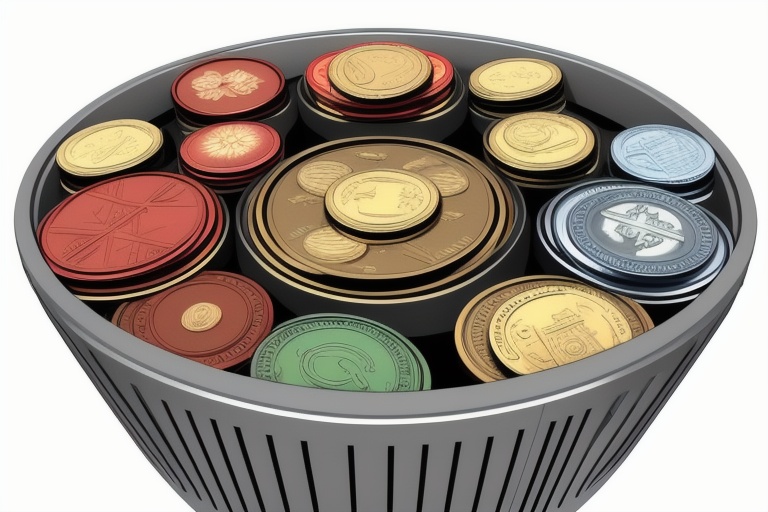Coin collecting, known as numismatics, is not only a rewarding hobby but it's also a form of investment. One of the most critical aspects of managing a coin collection is cataloging, which serves multiple purposes, from preserving the collection's value to simplifying the buying and selling processes. If done correctly, a catalog can serve as an invaluable tool in ensuring your numismatic journey is both enjoyable and profitable.
Coin collecting, known as numismatics, is not only a rewarding hobby but it's also a form of investment. One of the most critical aspects of managing a coin collection is cataloging, which serves multiple purposes, from preserving the collection's value to simplifying the buying and selling processes. If done correctly, a catalog can serve as an invaluable tool in ensuring your numismatic journey is both enjoyable and profitable.
The Core Benefits of Cataloging
To truly appreciate the significance of cataloging your coin collection, consider its diverse benefits. Cataloging allows you to maintain an accurate record of the numismatic pieces you own, which is paramount when trying to figure out market value, insurance needs, or when you decide to sell part of your collection. For collectors who aim to pass their treasures onto the next generation, a well-maintained catalog ensures the collection's history and value is preserved and understood.
Getting Started with Cataloging
Creating a Comprehensive Record
An effective catalog captures detailed information about each coin in your collection. Here’s what you should include:
- Country of Origin: Identifies the nation which produced the coin.
- Production Year and Mint Mark: Pinpoints when and where the coin was minted.
- Coin Series and Denomination: Describes the coin type and its face value.
- Grade and Certification: States the condition of the coin and includes details of any third-party grading.
- Quantity Owned: Keeps track of how many of each coin type you hold.
- Purchase Details: Notes the date acquired and the price paid, vital for tracking value fluctuations.
Selecting Your Cataloging Method
The method you choose for your catalog may evolve with your collection. For small collections, a handwritten notebook or index cards might suffice; larger or more intricate collections may benefit from using a digital spreadsheet or specialized coin collecting software. Whichever method you select, ensure you regularly back up your records to safeguard against loss or damage.
Advanced Cataloging - Beyond the Basics
For those with larger, more diverse collections, you may opt for advanced cataloging practices. These might include:
- Photographic Records: High-resolution images of your coins can assist with insurance claims and online sales.
- Historical Context: Adding historical facts or narratives can enhance the collection's significance and value.
- Market Value Tracking: Regularly update the estimated market values of each coin based on reliable sources.
Utilizing Technology
Software and Online Services
There are several coin collecting software options and online services available. Consider trying:
- NGC Registry and PCGS Set Registry: Both offer free tools for organizing, tracking, and displaying your collection.
- CoinManage: A comprehensive program for U.S. and Canadian coins, with market value updates.
- Collector’s Assistant: This tool provides extensive cataloging and inventory options for the committed numismatist.
When using such programs, make a habit of periodic data backups to external drives or cloud storage to protect your catalog.
Cataloging for Insurance and Estate Planning
Cataloging is not just about organization—it’s about financial responsibility. Your coin catalog becomes a critical document when insuring your collection. It can expedite claims and ensure adequate coverage. In estate planning, your catalog is a blueprint for your beneficiaries, revealing the true worth and depth of your collection.
Partnering with Professional Resources
Seeking Expertise
If you're uncertain about the value of a coin or need advice on managing your collection, consult with professional coin dealers or numismatic societies. Reputable dealers can provide verifications, appraisals, and insights into market trends.
Coin Dealers and Appraisals
Institutions like Atlanta Gold & Coin Buyers, equipped with deep numismatic knowledge and transparent business practices, are valuable partners for collectors. They can assist with appraisals and offer a platform for buying or selling rare coins.
Conclusion and Call to Action
Cataloging your collection might seem like an arduous task at first, yet the long-term rewards are substantial. With a well-maintained, detailed catalog, your coin collection is not just a personal treasure but a well-documented asset, poised to provide financial returns or to continue its legacy through your lineage. Whether your collection is modest in size or sprawling, start your cataloging endeavor today. Embrace the benefits it offers, and watch as it becomes one of the most cherished components of your numismatic adventure.
Information for this article was gathered from the following source.




